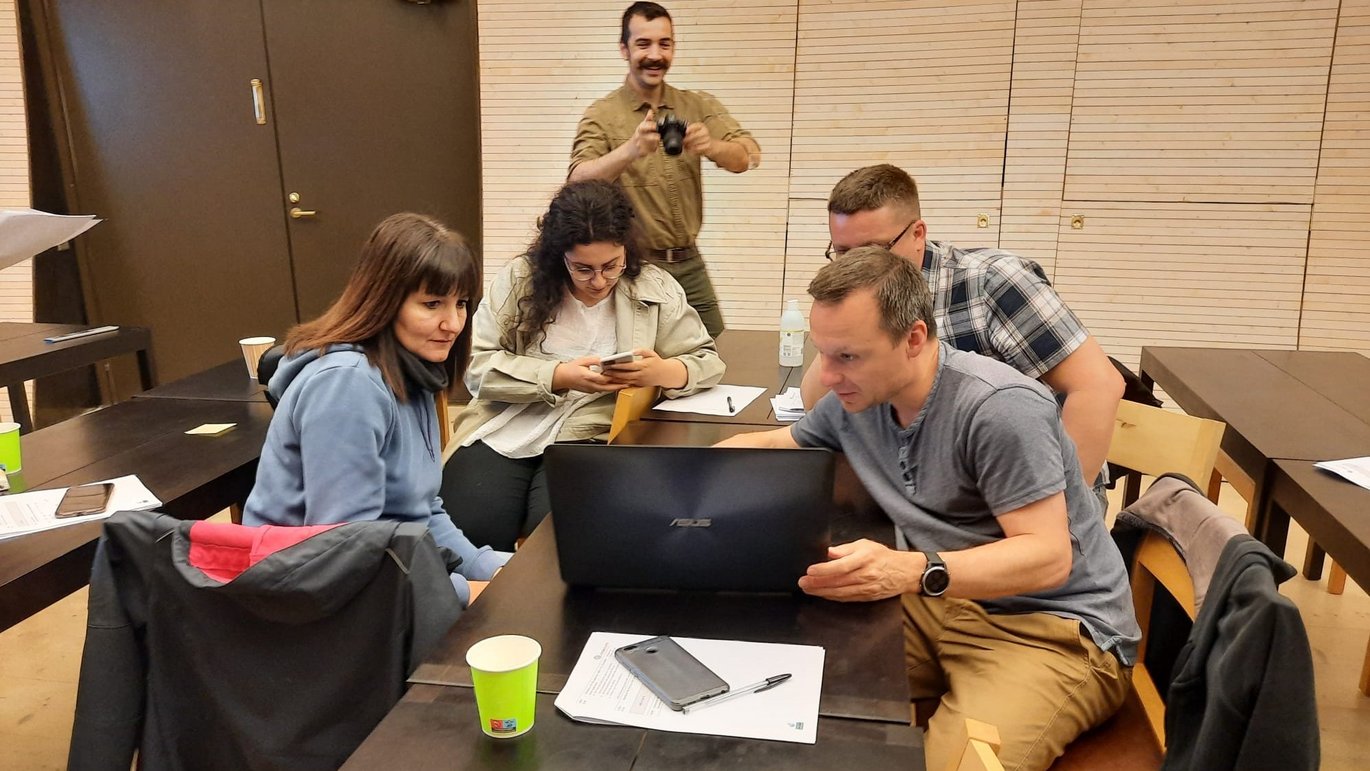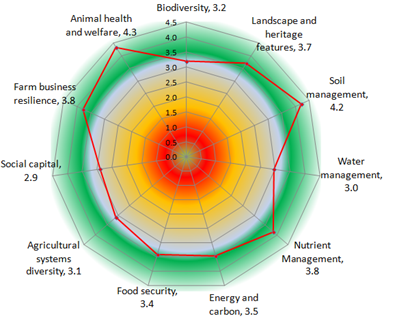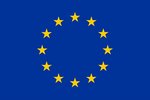Ecosystem Services of organic food production: advancing a sustainability assessment tool
Farms contribute to the provision of ecosystem services. Read how FOODLEVERS incorporated ecosystem services in a sustainability assessment tool for innovative organic farming systems.


Apart from their primary production function farms provide many ecosystem services. Ecosystem services include all effects of ecological systems that provide benefits to humans in direct or indirect ways. They include provisioning services (e.g. provision of food), regulating services (e.g. regulation of climate, air purification, water) and cultural services (e.g. importance of nature for leisure and recreation, education). The evaluation of ecosystem services provided by agricultural value chains is an essential part of FOODLEVERS’ holistic sustainability analysis of innovative ways of organic food production.
To achieve this, an important step was to identify key indicators for measuring ecosystem services that would advance an existing tool for assessing the sustainability of farming systems, the Public Goods-Tool1. Therefore, FOODLEVERS’ project team applied a three-stage selection and validation process.
First, the extensive literature review resulted in a pre-selection of about 100 indicators (from 635 in total) after having prioritised according to data quality, time requirements and relevance for the FOODLEVERS case studies. Special attention was given to including indicators capturing biodiversity, human nutrition and social well-being. Second, stakeholder surveys were conducted on national level. The 130 respondents were either part of the case studies’ food systems or/and experts for related thematic (sub-)aspects. This selection method yielded 25 indicators in the domains of environmental integrity, economic resilience and social well-being. Third, seven national workshops were held successfully. Experts and practitioners tested and validated the applicability, relevance and measurability of the adapted assessment tool for organic farming.
In the following months, the final version of the assessment tool will be put into practice by conducting on-site interviews with FOODLEVERS’ innovative case study farmers. In dialogue with the farmers, the tool is compiled with data. In addition to indicating a farm’s performance from different angles (e.g. soil management, landscape and heritage, energy and carbon, animal health and welfare, etc.) the updated Public Goods-Tool will now also highlight the services a farm provides to the ecosystem, above and beyond the food and other products leaving the farm gate.
The results are illustrated in a radar diagram indicating the performance in the different areas in scores (see Figure 2). By the means of the tool farmers learn about their farm’s overall sustainability and highlights areas where their farm performs well. It is also useful for identifying areas for improvement and possible solutions as well as for monitoring changes over time. In the context of FOODLEVERS, the results are expected to provide information on the sustainability performance of the innovative organic case studies. The method will help to contribute to FOODLEVERS’ overall aim by identifying deep leverage points, the most effective intervention points to make food systems more sustainable.
References
1 Gerrard, C.L. et al. (2012). Public Goods and Farming. In: Lichtfouse, E. (eds) Farming for Food and Water Security. Sustainable Agriculture Reviews, vol 10. Springer, Dordrecht. https://doi.org/10.1007/978-94-007-4500-1_1
Read more about FOODLEVERS
https://www.foodlevers.org/
Authors info
Michael den Herder, European Forest Institute, Finland, michael.denherder@efi.int
Valerie Holzner, Philipps-University of Marburg, Germany, valerie.holzner@geo.uni-marburg.de
Funding Bodies
- German Federal Ministry of Food and Agriculture, Federal Office for Agriculture and Food, (DE)
- Ministry of Agricultural, Food and Forestry Policies, (IT)
- Finnish Ministry of Agriculture and Forestry, (FI)
- National Centre for Research and Development, (PL)
- Department of Agriculture and Fisheries, (BE)
- Executive Agency for Higher Education, Research, Development and Innovation Funding, (RO)
- Department for Environment, Food and Rural Affairs (UK)
Editor: Karin Ullven, EPOK / Design: Christine Dilling, ICROFS
